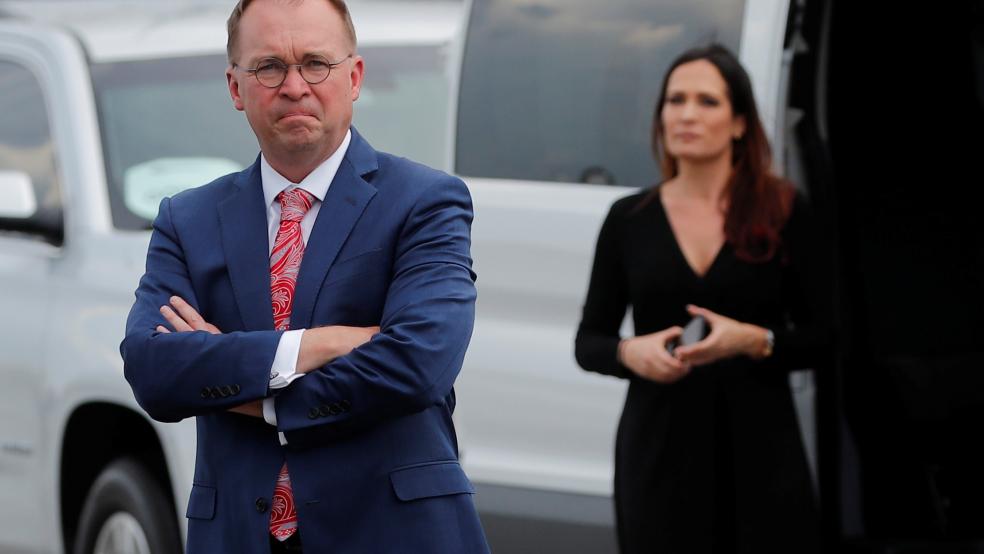Congressional leaders and top Trump administration officials failed to make progress on Wednesday toward a budget agreement to prevent another partial government shutdown later this year and avoid steep automatic budget cuts from kicking in for fiscal 2020.
“Both parties in Congress agree that avoiding cuts of $55 billion to domestic spending and $71 billion to defense spending is imperative,” Politico reports. “But there is sharp disagreement over how to do that, with the administration seeking to keep spending from rising any further given the yawning annual budget deficit.”
Where things stand: The Trump administration wants a one-year deal to extend current funding levels, stave off those steep automatic budget cuts and avoid a debt-ceiling crisis. Democrats prefer a two-year deal that would increase non-defense spending as well as military spending — and allow Congress to adjust funding for next year as it sees fit rather than keep levels as they were set for 2019. They see a one-year deal as a last-ditch fallback. Many Republican lawmakers also prefer a two-year deal in order to raise defense spending — but they’ve balked at Democrats’ non-defense spending proposal and they don’t want to get undercut by President Trump at the eleventh hour.
The key quotes:
- “Their level of non-defense discretionary spending was $639 billion, that was their proposal. Today their opening bid was $647 [billion],” said Acting White House Chief of Staff Mick Mulvaney, according to Politico. “The last time I checked, that’s not how you compromise.”
- "If the House and Senate could work their will without interference from the president, we could come to a good agreement much more quickly,” House Speaker Nancy Pelosi and Senate Minority Leader Chuck Schumer said in a joint statement after the meeting.
A note of optimism: “Still,” The Wall Street Journal’s Kristina Peterson and Andrew Duehren note, “it isn’t unusual for Republicans and Democrats to be nowhere close to an agreement months before the government runs out of money, since politically-difficult compromises typically grow increasingly acceptable as the deadline approaches.”





